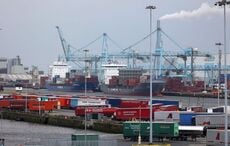Ryanair boss Michael O’Leary plans to charge passengers who forget to print out their own boarding cards $150 – 150 percent the current $60 fee for forgetfulness.
O’Leary claimed the fee increase would help eliminate the number of passengers who show up at check-in desks without their boarding pass.
The latest price hike is another move by the airline to lower its own costs and comes shortly after the no-frills carrier phased out check-in desks in an attempt to achieve savings.
However, it retains a number of check-in desks at airports to allow passengers to drop off their baggage at a fee ($22) for the first item and $52 for a second if checked in online. It costs double, $45 and $112 respectively, if checked in at the airport.
O’Leary justified the increase in the cost of issuing boarding cards to travelers at airports on the basis that “only a tiny number of passengers” still arrive for a flight without a printed ticket.
“You really now must check in before you get to the airport. If you don’t the ‘fine’ is $60 and if that doesn’t get rid of them all within a very short order, we double that ‘fine’ to $150. We don’t want people showing up without the pre-printed boarding card,” O’Leary said.
However, Ryanair has not formally indicated when the fee increase will come into effect.
Meanwhile, the airline reported pre-tax profits of $628 million for the six months to September -- in contrast with rival Aer Lingus which reported that its total fell by 9.7% during the third quarter of 2009 despite a 7% increase in passengers.
Aer Lingus said average passenger revenue fell by 14.8% year-on-year on account of a significant decline in long-haul passengers.
Overall, the airline carried a total of 3.08 million passengers during the third quarter of 2009.
The company said that short-haul average fares fell by 12.3% year-on-year, a decline which was partly offset by an 8.5% rise in ancillary revenue per passenger.
Net cash was $599 million at the end of the third quarter, a decrease of 38.8% compared to the $979.4 million recorded at the end of 2008. The decline includes an outflow of $160 million for restructuring costs.
The company said in a statement, “The business continues to experience challenging conditions. However the actions taken to remove capacity on underperforming parts of the network has had a positive impact on stabilizing load factors and yields while reducing operating costs. While the fall in yield year on year continues, the pace of decline in average fares does not appear to be accelerating currently.”
Last month Aer Lingus confirmed plans to cut 676 jobs as part of a restructuring plan aimed at reducing annual operating costs by $145 million before the end of 2011.




Comments